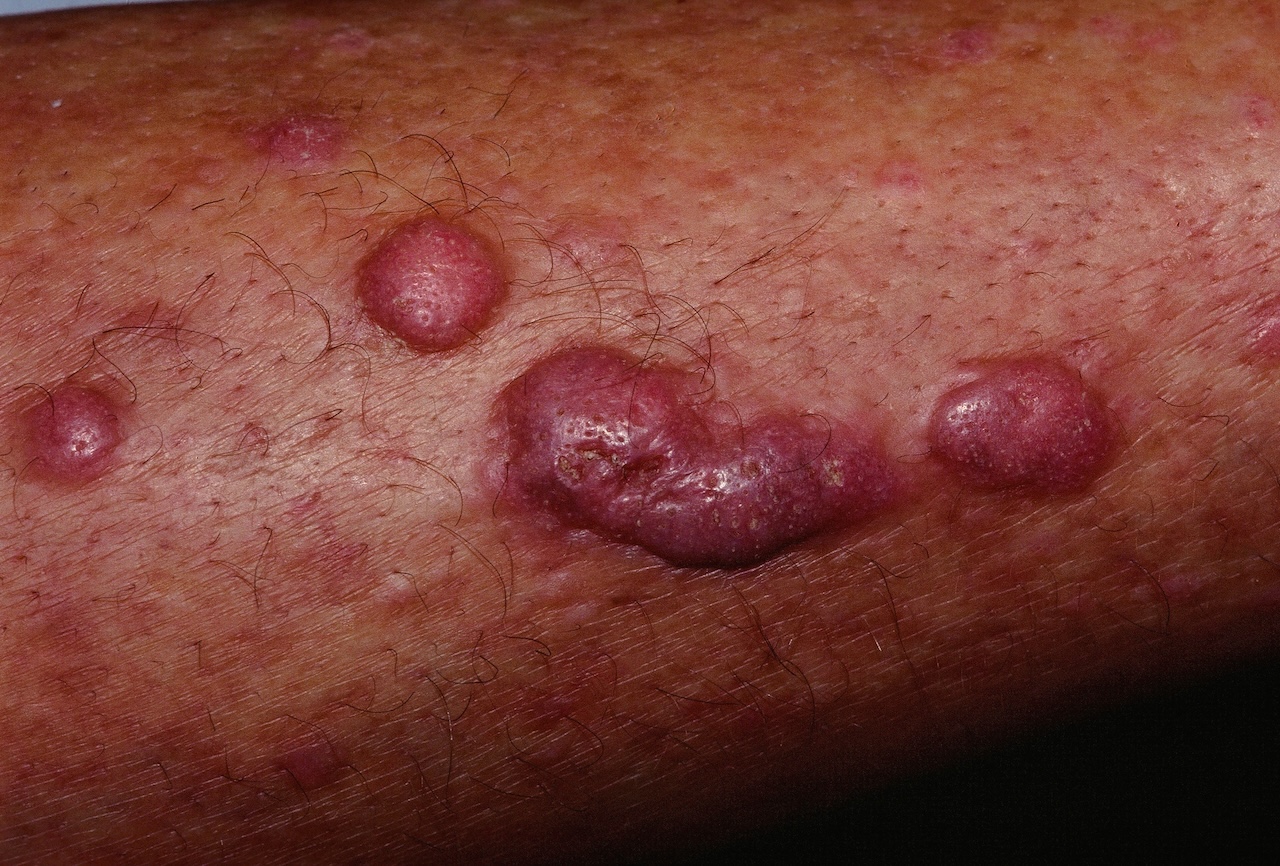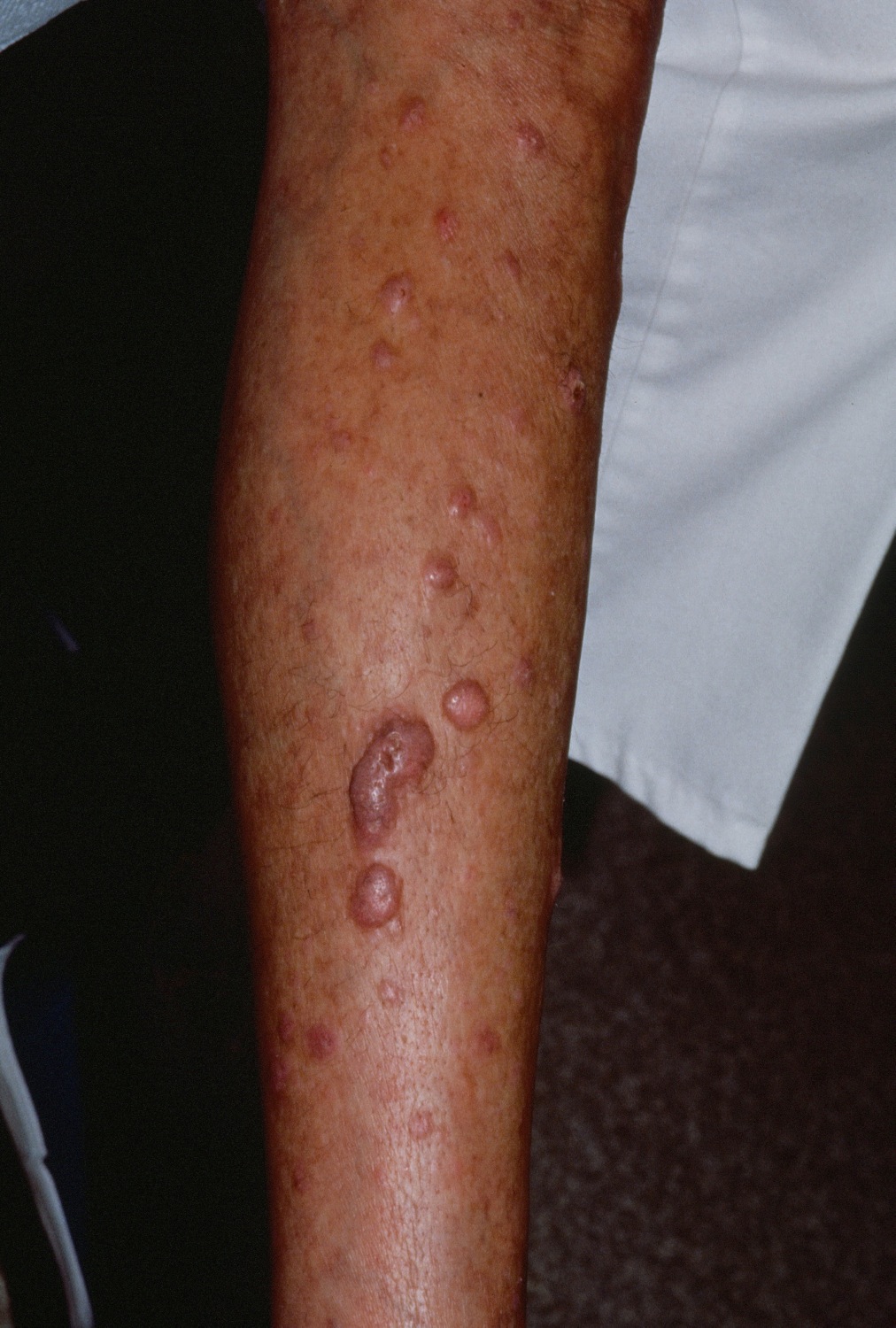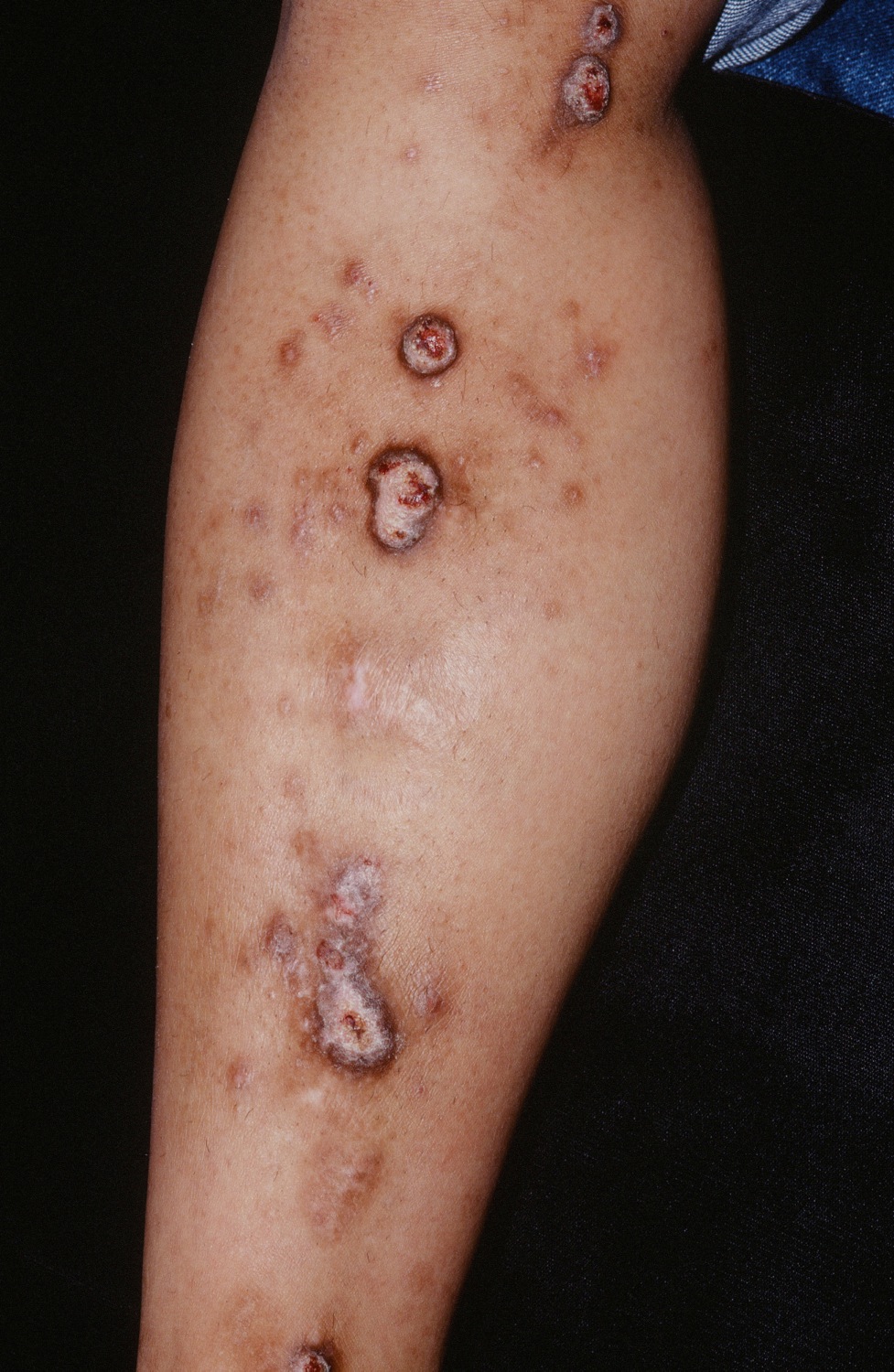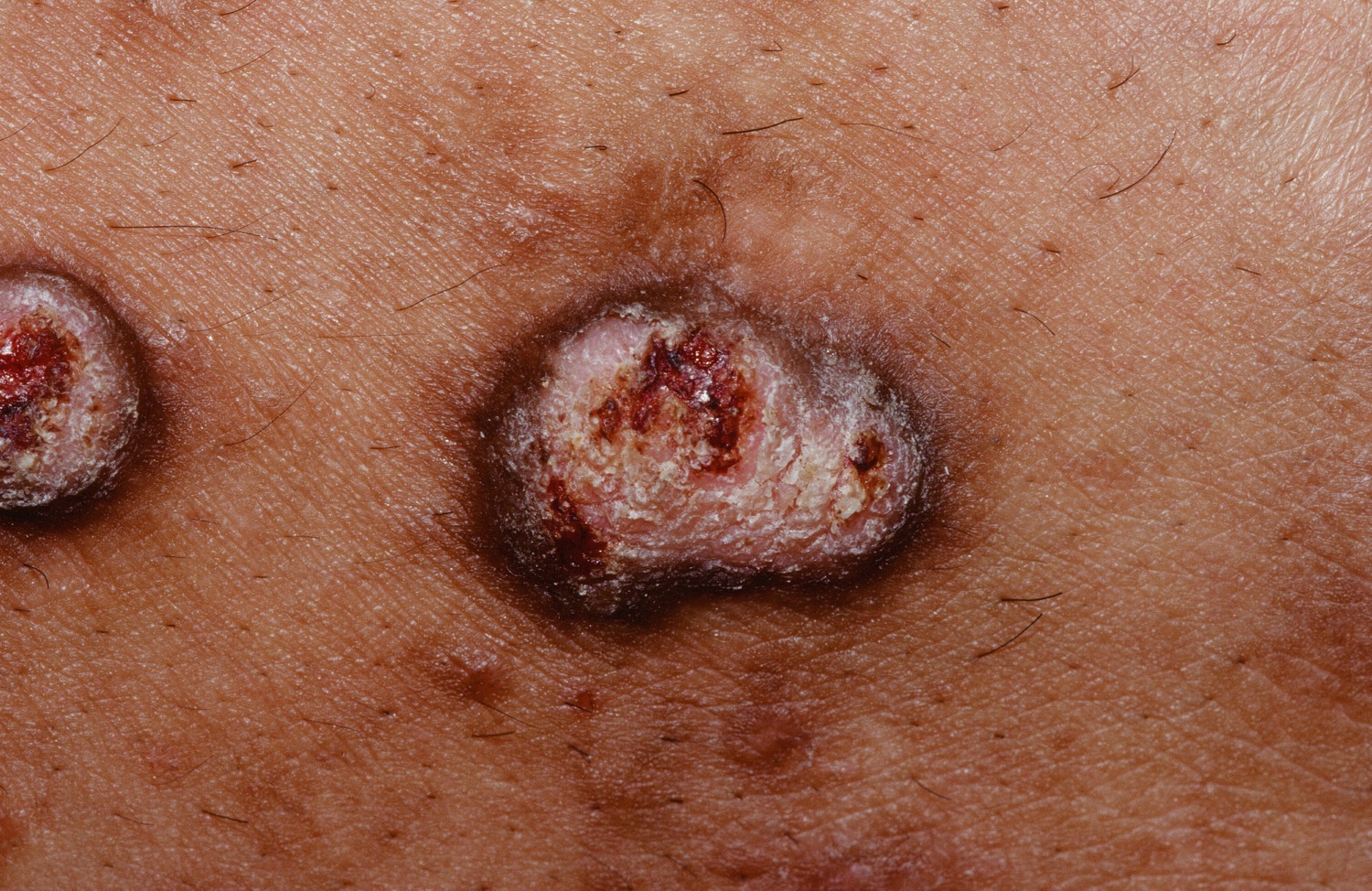
PRURIGO NODULARIS
Prurigo nodularis (PN) is a nodular form of lichen simplex chronicus. Both adult men and women are affected. The patient complains of intense itching and/or the inability not to scratch. It is very common for the patient to say, "My skin does not heal". The truth is that their skin would heal normally if they stopped scratching.
- It is not unreasonable to screen for chronic kidney disease, diabetes and liver disease as these are common comorbidities.
- Associations include African-American race, chronic kidney disease, hepatitis C, chronic obstructive pulmonary disease, congestive heart failure, depression and atopic dermatitis.
- About half of patients have atopic dermatitis.
- Sleeplessness is common.
- In Europe they call it chronic prurigo and have various subtypes including ulcerative prurigo, prurigo nodularis etc. In the US, we just call it PN, even if there aren't discrete nodules.
The patient develops hyperkeratotic, lichenified papules and nodules at sites of repeated scratching. The extensor surfaces of the extremities are typically affected. Excoriations and erosions are common. Secondary bacterial infection may occur. One key diagnostic feature is that the skin changes do not occur on the areas where the patient cannot scratch, e.g. the middle of the back--the butterfly effect.
Patients complain of itch, but also quite common are burning, pain and a stinging sensation.
Differential Diagnosis
Rarely some cases of bullous pemphigoid (pemphigoid nodularis) are similar, so one can do DIF (which should be negative in PN).
Workup
Usual--CBC, LFT, creatinine, thyroid, HbA1c
As Indicated--HIV, hepatitis, skin biopsy/DIF, Imaging (e.g CXR), spep, IgE, TB testing.



RegionalDerm
Homepage | Who is Dr. White? | Privacy Policy | FAQs | Use of Images | Contact Dr. White
It is not the intention of RegionalDerm.com to provide specific medical advice, diagnosis or treatment. RegionalDerm.com only intends to provide users with information regarding various medical conditions for educational purposes and will not provide specific medical advice. Information on RegionalDerm.com is not intended as a substitute for seeking medical treatment and you should always seek the advice of a qualified healthcare provider for diagnosis and for answers to your individual questions. Information contained on RegionalDerm.com should never cause you to disregard professional medical advice or delay seeking treatment. If you live in the United States and believe you are having a medical emergency call 911 immediately.
